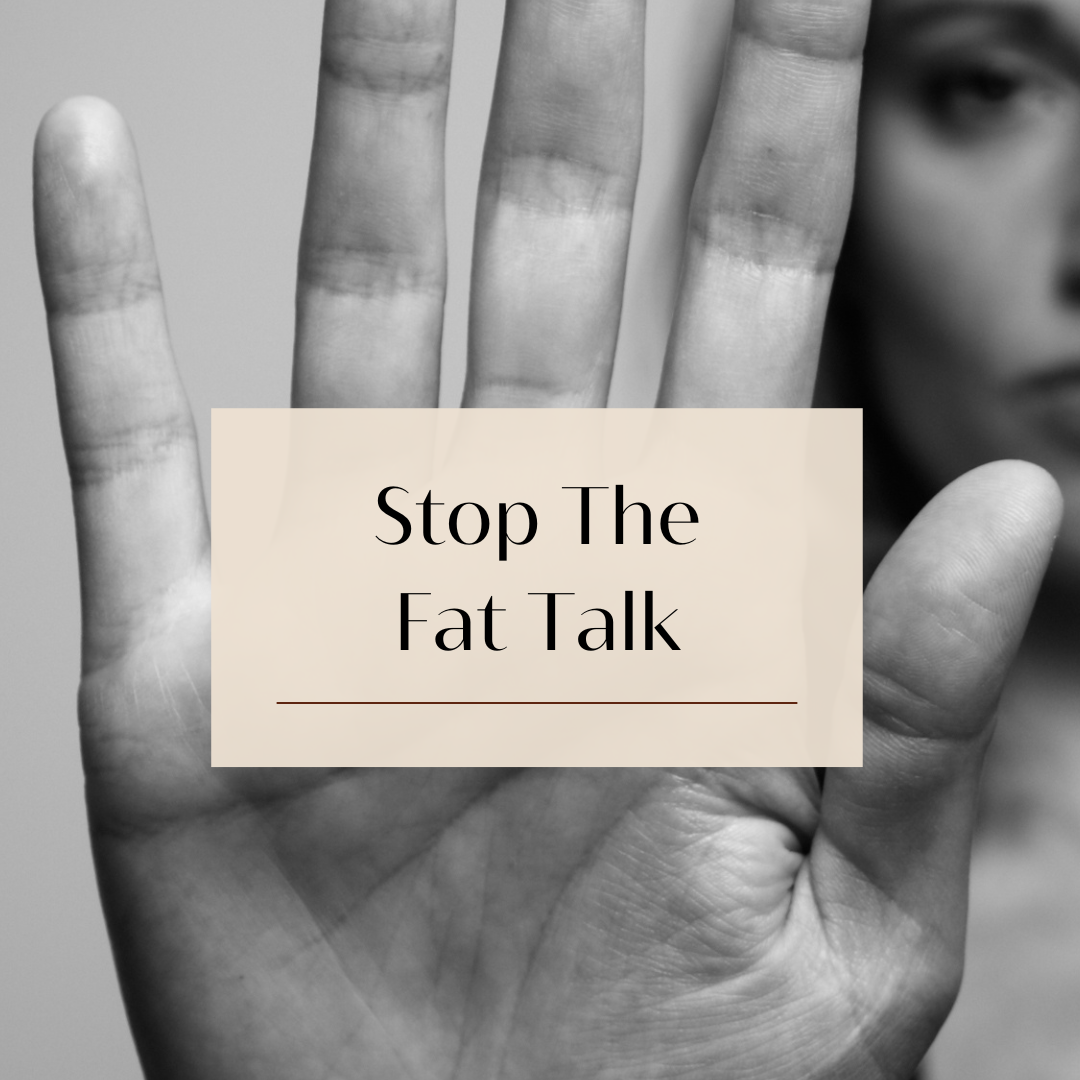Stop The Fat Talk

Stop The Fat Talk
The Impact of Mothers’ Fat Talk on Body Image & Eating Behavior
A couple weeks ago, I discussed a recent study about the powerful role mothers play in shaping their daughters’ body image and eating behaviors.
The comments’ section was absolutely buzzing. Women of all ages chimed in, corroborating the study’s findings with personal anecdotes that broke my heart.
***
“I have vivid memories of my mom pinching her fat and picking apart her body in the mirror, directly in front of me as a young girl. I’m 30 years old and still struggling with an ED.”
“As a child, people would approach my mother to say I looked just like [her]. In response, my mom would look at me with sorrow and say, ‘poor baby.’”
“I’ve hated my body since I was about nine or ten years old. My biggest issues are my legs and arms — the [same] parts my mother always hides.”
“I remember my mum just shredding herself and her appearance. I thought she was the most beautiful woman in the world and as a child, figured that if she considered herself [to be] fat and ugly, I must be disgusting.”
***
These experiences (and their repercussions) are consistent with the research, which shows that greater pressures and fat talk from mothers are associated with greater body dissatisfaction and disordered eating patterns (e.g., restriction, bulimia) in their daughters.
Mothers tend to be the main source of influence in the home and are often revered by their daughters as role models. Comments like “I’m so fat” or “I hate my thighs” might seem relatively harmless, but when daughters are privy to this kind of negative self-talk, they’re much more likely to engage in it themselves. In fact, research has shown that girls as young as five years old exhibit body dissatisfaction as a result of their mother’s weight concerns.
It’s a vicious cycle that gets passed down through generations, and stopping it starts with us.
Let me preface this by saying I’m not a mother. I don’t pretend to understand the challenges that come with being a parent, and I can’t imagine how difficult it must be to shape the life of another human. I’m also not perfect. I’ve verbalized negative thoughts about my body countless times throughout my life and probably hurt a fair number of people in the process.
But I am a daughter and like so many other women, spent years internalizing others’ fat talk — and many more years undoing the damage it did to my body image and relationship with food.
Even when fat talk isn’t directed towards anyone in particular, people pick up on it.
The way we talk about ourselves has the power to influence others and we must make a concerted effort to think before we speak.
For many (mothers included), reeling in the fat talk begins by taking steps to improve their own body image. Here are some of my favorite evidence-based strategies to start turning things around and transforming your home environment into the safe space it ought to be.
→ Be intentional about the focus of your conversations.
It’s difficult to pull away from negative body talk when you’re constantly putting yourself down. Instead of talking out how much you hate your belly and everything you’re doing to change it, bring up a recent accomplishment or new hobby.
Being intentional about the focus of your conversations also includes the compliments you’re paying others. Instead of commenting on someone’s physical appearance (which is almost always inappropriate), show a genuine interest in their strengths, skills, or passions. Making a point to de-emphasize the importance of how people look in your conversations won’t go unnoticed by your daughter and it’s likely that she’ll start to appreciate the same things in herself.
→ Shift your focus from aesthetics to functionality.
Diet culture glorifies leanness and other unrealistic ideals that can make you feel bad about yourself. As a result, you might be discounting the things that make you unique.
Body functionality encompasses everything your body is capable of. It has nothing to do with how you look and everything to do with how you move, think, connect, and communicate.
Start by making a list of all the things you appreciate about yourself that make your life meaningful and worth living. Better yet? Invite your daughter to do it with you.
→ Curate your social media feed.
It’s no secret that social media platforms showcase appearance ideals, distort self-perception, and encourage social comparison. In fact, research consistently shows a positive correlation between time spent on social media apps and negative body image.
Rather than trying to give up social media entirely, curate your feed and unfollow the accounts responsible for eliciting the negative body image thoughts you’re unintentionally passing on to your daughter. If you find this difficult, ask yourself: would I be OK with my daughter seeing this content? If the answer is no, it’s probably time to unfollow.
It’s extremely difficult to acknowledge that your words could be hurting someone you love. Rather than harboring resentment or anger, recognize that you’re human and challenge yourself to move forward with the intention of removing fat talk from your home.
After all, you just never know who’s listening.
References
Davison, K.K., Markey, C.N., & Birch, L.L. (2000). Etiology of body dissatisfaction and weight concerns among 5-year-old girls. Appetite, 35(2): 143-51. doi: 10.1006/appe.2000.0349
Deek, M.R., Prichard, I., & Kemps, E. (2023). The mother-daughter-sister triad: The role of female family members in predicting body image and eating behaviour in young women. Body Image, 46, 336-346. doi: http://doi.org.10.1016/j.bodyim.2023.07.001
Jiotsa, B., Naccache, B., Duval, M., Rocher, B., & Grall-Bronnec, M. (2021). Social media use and body image disorders: Association between frequency of comparing one’s own physical appearance to that of people being followed on social media and body dissatisfaction and drive for thinness. Int J Environ Res Public Health, 18(6): 2880. doi: 10.3390/ijerph18062880





